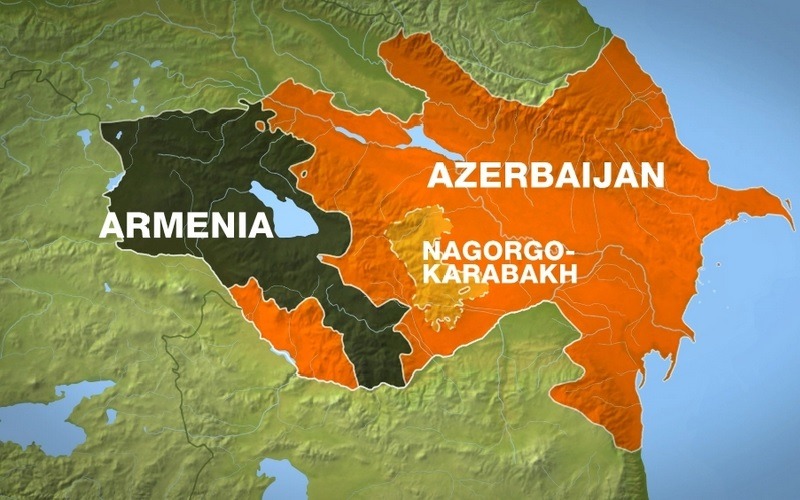Ahmad Kazemi told the Strategic Council on Foreign Relations that a memorandum has been signed between Baku and Yerevan and it is not a peace treaty but a ceasefire agreement and like many other ceasefire agreements such as the 1994 truce agreement, it is being violated by the two countries.
He said the Karabakh dispute, against all the propaganda especially in Azerbaijan Republic, has not ended.
“In fact, the ceasefire treaty of 9 November has some weakness which would lead the two countries to continue conflict. One of the most important weaknesses of this treaty is that the legal regime of Karabakh region has not been specified and this constitutes the root of conflict between the two countries.”
Baku’s effort to establish the Zangezur corridor
The author of the book entitled “Security in South Caucasus” emphasized that challenges as the result of the absence of this legal regime cannot be resolved through speeches and theory making and unless this regime is specified, conditions will not change.
“It seems that what is causing amongst other factors the continuation of conflict between Armenia and Azerbaijan and the main reason of tension is the Baku’s approach to put pressure on Armenia in order to agree with the establishment of a so-called Zangezur corridor.”
Kazemi explained that the Republic of Azerbaijan is seeking to establish the so-called pan-Turkish illusionary Zangezur corridor in south of Armenia under the pretext of creating connectivity in the region.
“And normally, no one in Armenia is interested in giving such a concession to Azerbaijan. This country has considered border dispute and border points which has existed since the Soviet era as a reason for conflict with Armenia so as to put pressure on Armenia to accept this corridor.”
He added that border disputes of Azerbaijan is not limited to Armenia as Baku has border disputes with Georgia and Russia as well which have not resulted in conflict.
He said that under conditions in which the territories of the Republic of Azerbaijan have been liberalized outside Karabakh and a truce treaty has been signed, normally the parties are expected to act to stabilize peace and tranquility in the region.
“Under such circumstances, the excuse of unspecified border points and conflict instead of negotiation indicate that Baku is pursuing other goals and that is to put military pressure on Armenia to accept the establishment of this corridor.”
This expert of international law said this corridor is not compatible with any geopolitical and historical realities of the region and cannot be established and these pressures cannot force Armenia to accept it because no one in Armenia can accept to sign an agreement which would create fundamental geopolitical changes in the region.
Referring to the news on the presence of Russian soldiers between the two countries, he said Russia, on the basis of the collective security treaty between the CIS countries and based on bilateral military and security agreements with Armenia especially concerning the activity and extension of Base 102 of Russia in Armenia, consider itself obligated to support the territorial integrity of Armenia and warned in the second Karabakh conflict that if war is drawn inside Armenia, Russia would intervene in this war.
He added that the Russians were pursuing this position in the collective security treaty that they will not intervene in border disputes; however, when there is military aggression, Russia consider itself obligated to support Armenia. Normally, he said, the presence of Russian forces in border areas, can prevent the exacerbation of the conditions.
This analyst of Caucasus issues said that Russia welcomes any presence which would strengthen its position in the region as it was able to gain remarkable concessions in this conflict and establish itself as a peacekeeping force in Karabakh and the area separating the two countries.
Kazemi added that there is news in this regard that Russia is issuing Russian passports for the Karabakh residents to be known as Russian citizens and this may mean that Karabakh may turn in future into a province such as Kaliningrad for Russia located outside it.
“From this viewpoint, many believe that in the project of second Karabakh war, a more complicated situation has been created and the prospect of peace and stability in the region has become more complicated.”










0 Comments